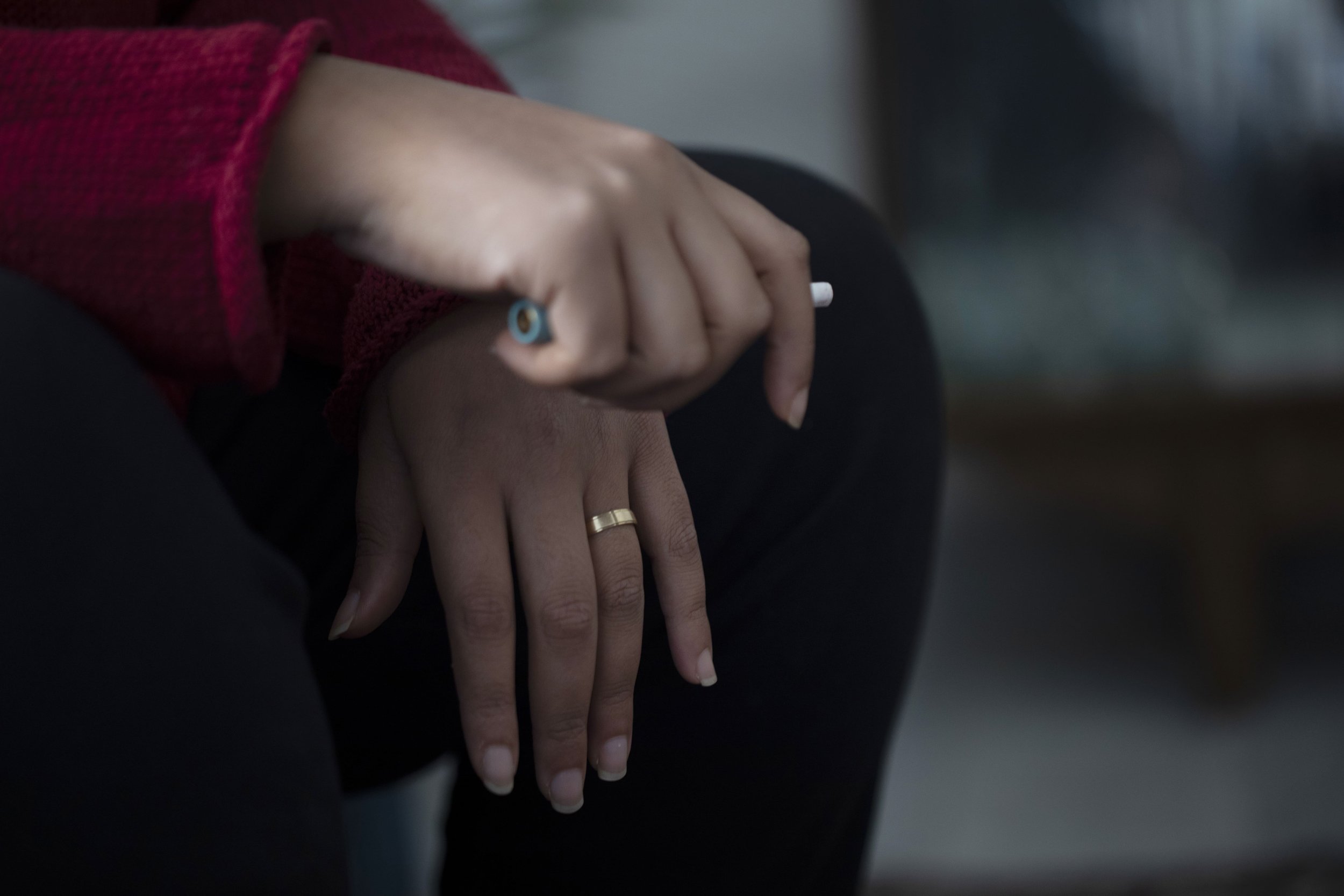Heba: Many obstacles, limited options.
اقرأ باللغة العربية أدناه
Heba
Heba Hussein was born in Beirut in 1992 to a Lebanese mother and a Palestinian father. Her husband Nour is from Syria. She holds the Palestinian ID that the family obtained through UNRWA and which is equivalent to a permanent residence in Lebanon, which makes her situation inside Lebanon "better than the rest of the children of Lebanese women of other nationalities" as she says.
Heba's father used to work in the Palestinian National Crescent, and in the early nineties he had three options: either to immigrate to Europe, or to stay here and obtain Lebanese citizenship, or to stay here while refusing citizenship. He chose to stay because he was attached to this land, but he refused the Lebanese nationality as a principle related to the Palestinian cause.
When Heba was asked about the obstacles she faced due to the deprivation of her mother’s Lebanese nationality, a calm smile spread on her face and she began to list them. They begin with the narrowness of options she had during her university studies, which probably resulted from her prior knowledge of her inability to join trade unions and the impossibility of accessing certain positions in the future. She was left with very limited options. Another obstacle that Heba refers to is the right to private property, and in this regard, she points out that the family home that her mother own will not be transferred to the children, which is very unfair and definitely affects the sense of stability and belonging: “We are from here but do not belong here at the same time. We belong to this country and are connected to it because we were born and raised here, but at the same time we are treated as strangers and we have no right to own a home. My inability to own property makes me feel incapable of looking forward and planning for the future, and this is indeed frustrating”.
However, Heba believes that things are changing, albeit slowly, regarding women's rights. There is very little hope for the adoption of a law that gives women the right to pass the nationality to their children, given the complications that this file carries. She only hopes that the Lebanese state adopts a law that regulates the situation of foreigners in general and the children of Lebanese women in particular, and restores some of their lost rights.
Heba is trying to obtain a residence permit for her husband, Nour, through her mother, as she is his sponsor and his relative at the same time. Both Heba and Nour are now focusing on their career, which gives them a kind of security and allows them to build stability on several levels. As for emigration, it is not an option for her unless it is for the purpose of continuing her studies. Despite all the difficulties, she feels safe surrounded by family and friends, and that does not mean that she is not aware of the injustice resulting from depriving the Lebanese mother of her right to pass citizenship on to her children, but she deals with the issue calmly and wisely.
ولدت هبة حسين في بيروت في العام 1992 لأم لبنانية وأب فلسطيني، زوجها نور سوري الجنسية، وهي تحمل الهوية الفلسطينية التي استحصلت عليها العائلة عن طريق الأونروا وتعادل إقامة دائمة في لبنان، ما يجعل وضعها داخل لبنان "أفضل من باقي أبناء اللبنانيات من جنسيات أخرى" كما تقول
كان والد هبة يعمل في الهلال الوطني الفلسطيني، وفي بداية التسعينات وقف أمام ثلاث خيارات: إما الهجرة إلى أوروبا، أو البقاء في لبنان والحصول على الجنسية، أو البقاء مع رفض الجنسية. اختار الوالد البقاء لتعلقه بهذه الأرض، إلا أنه رفض الجنسية اللبنانية كموقف مبدئي يتعلق بالقضية الفلسطينية
عند سؤالها عن العوائق التي واجهتها بسبب حرمانها من جنسية والدتها اللبنانية، ارتسمت على وجهها ابتسامة هادئة وبدأت بالتعداد: تبدأ بضيق الخيارات خلال دراستها الجامعية نتيجة معرفتها المسبقة بعدم قدرتها على الانضمام إلى النقابات واستحالة الوصول إلى مناصب معينة مستقبلاً، كما تشير إلى مسألة التملك، وفي هذا الصدد تقول أن منزل العائلة الذي تملكه والدتها لن ينتقل للأبناء أي لها ولأخوتها الأربعة، وهو أمر مجحف للغاية ويؤثر قطعاً على الشعور بالاستقرار والانتماء وتضيف: "نحن من هنا ولسنا من هنا في نفس الوقت، فنحن ننتمي إلى هذا البلد ومرتبطون به لأننا ولدنا وترعرعنا فيه ولكننا في نفس الوقت غرباء ولا يحق لنا تملّك بيتٍ فيه، عدم قدرتي على التملك تشعرني بأنني عاجزة عن التطلع للمستقبل والتخطيط له، وهذا بطبيعة الحال أمر محبط"
لكن هبة ترى بأن الأشياء تتغير وإن ببطء بما يتعلق بحقوق المرأة، إلا أن الأمل بإقرار قانون يعطي المرأة حقها بإعطاء الجنسية لأولادها ضئيل جداً نظراً لما يحمله هذا الملف من تعقيدات. لكنها تتمنى إقرار قانون ينظم أوضاع الأجانب بشكل عام وأولاد اللبنانيات بشكلِ خاص، ويعيد لهنّ بعضاً من حقوقهنّ المهدورة
تحاول هبة الاستحصال على إقامة لزوجها نور عن طريق والدتها، فوالدتها كفيلته وقريبته في الآن نفسه. وهما الآن يصبان تركيزهما على عملهما الذي يمنحهما نوعاً من الأمان ويسمح لهما ببناء استقراراً على مستويات عدة. أما الهجرة فهي ليست خياراً بالنسبة لها إلا في حال كانت بهدف إكمال دراستها، فهي بالرغم من كل الصعوبات مستقرة في لبنان ومحاطة بالعائلة والأصدقاء، وذلك لا يعني أنها لا تعي كمية الظلم الناتج عن حرمان الأم اللبنانية من حقها في إعطاء جنسيتها لأبنائها، إلا أنها تتعامل مع الموضوع بهدوء وحكمة
Writer
Khouloud Yassine
Photographer
Elsy Haddad
Born in 1982, I am a documentary photographer based in Beirut. I also lead workshops in several regions of Lebanon, introducing children to photography.
My work revolves around transition and change, as well as around places that hold memories and been witness to different eras and events. I am interested in people and their stories, and look for ways of sharing it. I like to push the boundaries of the genre sometimes bringing my own fiction to the story.
In 2015, I received a grant from ADPP for my project 'Stranded - On Life After Imprisonment' which was exhibited during the Golf Plus Photo week in Dubai in 2019.
Since 2019, I have been part of Collectif 1200, a collective of 11 Lebanese photographers, working on topics related to Lebanon and the current situation. Together we showed our work in FAB (Festival des Arts de Bordeaux) in 2021 and in Casa Arabe during Photo España 2022.
I now divide my time between my work and my 6-year-old daughter







